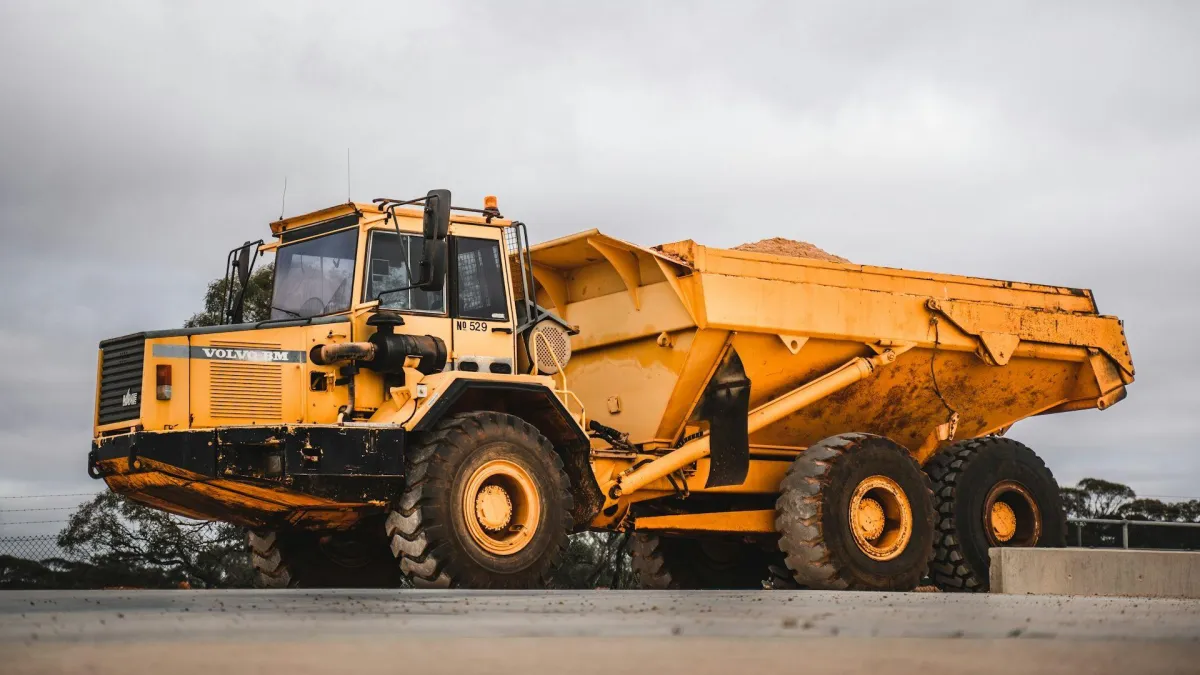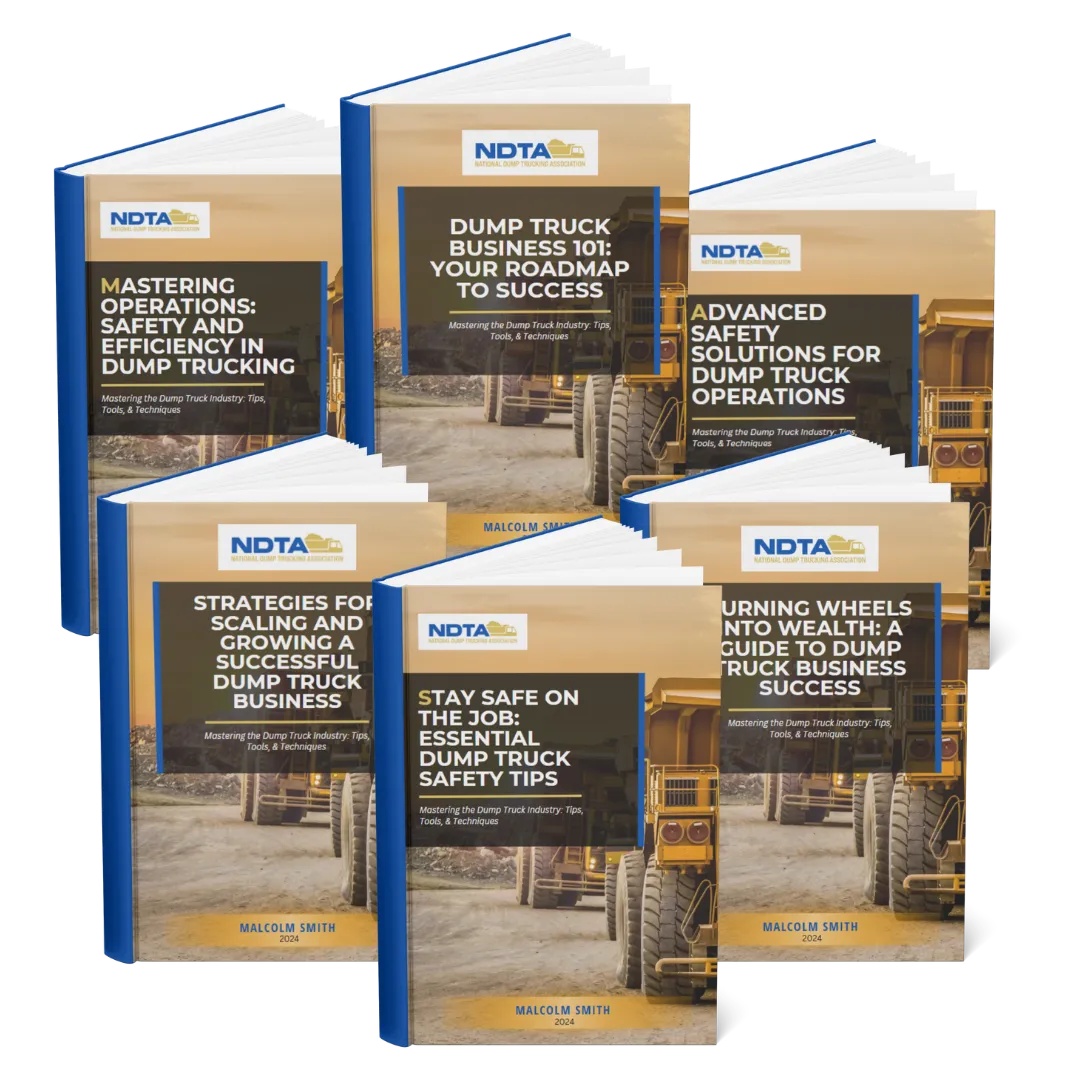
Industry News
Industry News

Do I Need a Dump Truck License?
Do I Need a Dump Truck License?
dump truck licensing Jun 05, 2024

Ever dreamed of driving a dump truck or starting a dump trucking business? If so, you've likely started researching the initial steps to take. One of the most important questions on any aspiring dump truck operator's mind is: Do I need a dump truck license?
The simple answer is yes, but the specifics can vary depending on your location and the type of dump truck you plan to operate. This guide will equip you with the knowledge to navigate the dump truck licensing process and ensure you're operating legally.
Understanding Dump Truck Licensing Requirements
Operating a dump truck typically falls under the category of operating a Commercial Driver's License (CDL) vehicle. A CDL is a special driver's license required to operate vehicles with a Gross Vehicle Weight Rating (GVWR) exceeding 26,001 pounds, or vehicles towing trailers with a GVWR of more than 10,000 pounds.
Most dump trucks fall well above this weight threshold, making a CDL mandatory for most operators. There are different CDL classes, each with its own set of qualifications and restrictions. Depending on what type of dump trucking you plan to do, you'll likely need either a Class A or a Class B CDL.
Special Endorsements
In addition to the base CDL class, you might also need endorsements to operate dump trucks in specialized situations. Here are some common endorsements you might encounter:
Air Brakes (T endorsement): This endorsement is mandatory for operating vehicles equipped with air brake systems, which are standard on most modern dump trucks.
Combination Vehicles (X endorsement): If you plan to operate a dump truck with a trailer exceeding 10,000 pounds GVWR, you'll need a Combination Vehicles (X endorsement) in addition to your Class B CDL.
Hazardous Materials (H endorsement): This endorsement is necessary if you intend to haul hazardous materials like waste or chemicals in your dump truck.
Tank Vehicles (N endorsement): If your dump truck is specifically designed for hauling liquids, such as septic tanks, you'll likely need a Tank Vehicles (N endorsement).
The specific endorsement requirements will depend on the type of materials you plan to transport and any local regulations. Be sure to check with your local DMV for a comprehensive list of endorsements relevant to your dump truck operations.
Variations by State and Locality
It's important to remember that the specifics of CDL requirements can vary slightly by state and even locality. While the core requirements outlined above are generally applicable nationwide, there might be additional tests, fees, or endorsements specific to your region.
Again, the best way to ensure you have the most up-to-date and accurate information is to contact your local Department of Motor Vehicles (DMV) office. They can provide you with the definitive CDL requirements for operating a dump truck in your area.
Steps to Obtaining Your Dump Truck License
Now that you understand the need for a CDL, let's explore the steps to obtaining yours. The process typically involves meeting eligibility requirements, passing knowledge tests and skills demonstrations, and undergoing a Department of Transportation (DOT) medical examination.
The skills demonstrations involve a hands-on evaluation of your ability to maneuver a commercial vehicle safely. This might include pre-trip inspections, basic vehicle operation, and navigating various driving scenarios. Many states offer CDL training programs or permit options that allow you to practice your skills before taking the official tests.
Ongoing License Maintenance
Once you've obtained your CDL, it's important to remember that it requires ongoing maintenance. CDLs typically need to be renewed every few years, and some states might have continuing education requirements for CDL holders. Staying up-to-date on these requirements ensures your license remains valid and allows you to continue operating your dump truck legally.
Finding Support for Your Dump Trucking Business
Ready to get your dump trucking dreams off the ground? The National Dump Trucking Association offers a wealth of resources. From downloadable templates to informative articles on financial planning and marketing for dump truck businesses, the NDTA equips you with the tools you need to chart your course to success.
Whether you’re looking to start a new dump trucking business or expand your knowledge, we encourage you to explore the NDTA's library of resources and consider becoming a member. The NDTA offers a comprehensive toolbox of knowledge, industry connections, and ongoing support to empower you throughout your journey in the dump truck industry.
To find out more, just get in touch with us today!

Do I Need a Dump Truck License?
Do I Need a Dump Truck License?
dump truck licensing Jun 05, 2024

Ever dreamed of driving a dump truck or starting a dump trucking business? If so, you've likely started researching the initial steps to take. One of the most important questions on any aspiring dump truck operator's mind is: Do I need a dump truck license?
The simple answer is yes, but the specifics can vary depending on your location and the type of dump truck you plan to operate. This guide will equip you with the knowledge to navigate the dump truck licensing process and ensure you're operating legally.
Understanding Dump Truck Licensing Requirements
Operating a dump truck typically falls under the category of operating a Commercial Driver's License (CDL) vehicle. A CDL is a special driver's license required to operate vehicles with a Gross Vehicle Weight Rating (GVWR) exceeding 26,001 pounds, or vehicles towing trailers with a GVWR of more than 10,000 pounds.
Most dump trucks fall well above this weight threshold, making a CDL mandatory for most operators. There are different CDL classes, each with its own set of qualifications and restrictions. Depending on what type of dump trucking you plan to do, you'll likely need either a Class A or a Class B CDL.
Special Endorsements
In addition to the base CDL class, you might also need endorsements to operate dump trucks in specialized situations. Here are some common endorsements you might encounter:
Air Brakes (T endorsement): This endorsement is mandatory for operating vehicles equipped with air brake systems, which are standard on most modern dump trucks.
Combination Vehicles (X endorsement): If you plan to operate a dump truck with a trailer exceeding 10,000 pounds GVWR, you'll need a Combination Vehicles (X endorsement) in addition to your Class B CDL.
Hazardous Materials (H endorsement): This endorsement is necessary if you intend to haul hazardous materials like waste or chemicals in your dump truck.
Tank Vehicles (N endorsement): If your dump truck is specifically designed for hauling liquids, such as septic tanks, you'll likely need a Tank Vehicles (N endorsement).
The specific endorsement requirements will depend on the type of materials you plan to transport and any local regulations. Be sure to check with your local DMV for a comprehensive list of endorsements relevant to your dump truck operations.
Variations by State and Locality
It's important to remember that the specifics of CDL requirements can vary slightly by state and even locality. While the core requirements outlined above are generally applicable nationwide, there might be additional tests, fees, or endorsements specific to your region.
Again, the best way to ensure you have the most up-to-date and accurate information is to contact your local Department of Motor Vehicles (DMV) office. They can provide you with the definitive CDL requirements for operating a dump truck in your area.
Steps to Obtaining Your Dump Truck License
Now that you understand the need for a CDL, let's explore the steps to obtaining yours. The process typically involves meeting eligibility requirements, passing knowledge tests and skills demonstrations, and undergoing a Department of Transportation (DOT) medical examination.
The skills demonstrations involve a hands-on evaluation of your ability to maneuver a commercial vehicle safely. This might include pre-trip inspections, basic vehicle operation, and navigating various driving scenarios. Many states offer CDL training programs or permit options that allow you to practice your skills before taking the official tests.
Ongoing License Maintenance
Once you've obtained your CDL, it's important to remember that it requires ongoing maintenance. CDLs typically need to be renewed every few years, and some states might have continuing education requirements for CDL holders. Staying up-to-date on these requirements ensures your license remains valid and allows you to continue operating your dump truck legally.
Finding Support for Your Dump Trucking Business
Ready to get your dump trucking dreams off the ground? The National Dump Trucking Association offers a wealth of resources. From downloadable templates to informative articles on financial planning and marketing for dump truck businesses, the NDTA equips you with the tools you need to chart your course to success.
Whether you’re looking to start a new dump trucking business or expand your knowledge, we encourage you to explore the NDTA's library of resources and consider becoming a member. The NDTA offers a comprehensive toolbox of knowledge, industry connections, and ongoing support to empower you throughout your journey in the dump truck industry.
To find out more, just get in touch with us today!
Free Ebooks
Discover expert insights and practical guides to elevate your success for free!

Our Hours
9:00 AM – 5:00 PM
Monday – Friday
Location
504 Fair St SW Atlanta,
GA 30313

